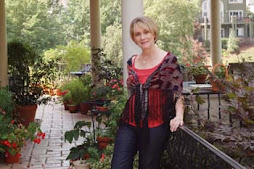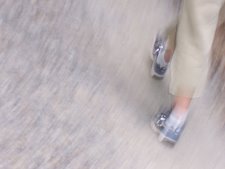
Last year I read an article in Outside magazine about a student named Chris McCandless who literally abandoned everyone he knew, all his possessions, and walked away from his life. His wealthy parents had given him everything in life including a chance at an Ivy league school. But he took all of his identification cards and cut them up. He pried off his license tag, hid it, and abandoned his car on the side of the road. He burned what cash he had. Then he worked his way north until he reached the wilderness of Alaska. In his journal was later found the entry: Today I walk into the wild.
Chris’s story became the film, Into the Wild, produced by Sean Penn. At the outset we are left to wonder why Chris walked away from his privileged life. But being privy to his internal thoughts as expressed in a journal, we begin to see what seems to be a young Thoreau emerging. But one of his entries is very telling. He refers back to when he had some cash and was able to buy the necessities of life comparing it to life in the wild where he is dependent on killing wild game to survive. He says that he is so much more alive when he has to depend on his own abilities to live.
I can’t imagine the numbness he must have been fighting to get to that desperate point. He was so desperate to feel something that was wholly his, he gave up everything to feel it. There is a tendency among today’s youths to explore more, to leave behind the comforts of their parents’ home and explore the world like vagabonds. Is what we parents have worked so hard to provide for our children really helping them or is it leaving them feeling as if they are missing out on the striving and struggle to survive?
In the end, Chris does not survive. In spite of asking a few people how to do things like skin an animal, he doesn’t know enough about the Alaskan wilderness to overcome starvation and then accidentally ingests a poisonous plant. The film left me yearning to help my son enough to make him feel secure in his abilities, but to leave him the wiggle room to make mistakes and taste of disappointment. It’s a rite of passage to fail and then problem solve your way to success.
He has a right to feel and own those experiences and live his own life.
Chris’s story became the film, Into the Wild, produced by Sean Penn. At the outset we are left to wonder why Chris walked away from his privileged life. But being privy to his internal thoughts as expressed in a journal, we begin to see what seems to be a young Thoreau emerging. But one of his entries is very telling. He refers back to when he had some cash and was able to buy the necessities of life comparing it to life in the wild where he is dependent on killing wild game to survive. He says that he is so much more alive when he has to depend on his own abilities to live.
I can’t imagine the numbness he must have been fighting to get to that desperate point. He was so desperate to feel something that was wholly his, he gave up everything to feel it. There is a tendency among today’s youths to explore more, to leave behind the comforts of their parents’ home and explore the world like vagabonds. Is what we parents have worked so hard to provide for our children really helping them or is it leaving them feeling as if they are missing out on the striving and struggle to survive?
In the end, Chris does not survive. In spite of asking a few people how to do things like skin an animal, he doesn’t know enough about the Alaskan wilderness to overcome starvation and then accidentally ingests a poisonous plant. The film left me yearning to help my son enough to make him feel secure in his abilities, but to leave him the wiggle room to make mistakes and taste of disappointment. It’s a rite of passage to fail and then problem solve your way to success.
He has a right to feel and own those experiences and live his own life.








